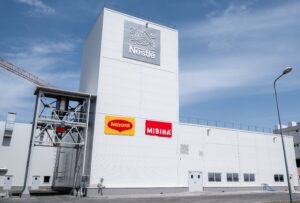
The American company Gulf intends to open a network of gas stations in Uzbekistan and invest in the aviation industry. This was announced by the company’s vice president Craig Kramer on February 18 in Washington at a meeting of President Shavkat Mirziyoyev with representatives of American business and financial institutions.
According to him, over the next two years, the company plans to launch at least 100 modern and convenient gas stations that will meet Western standards.
“They will be built according to Western standards and provide high-quality fuel. During this period, we will invest at least $150 million in retail assets. The financing is fully secured. Each facility will be modern and unique in terms of volume and design,” he said in a story on Uzbekistan 24 TV channel.
In addition, it is planned to create transport centers for tourists and transit carriers along the highways.
“These projects will create at least 30 new jobs at each facility. In total, more than 3,000 new jobs will be organized for Uzbek citizens,” the Gulf representative said.
Kramer said that he had received proposals from the country’s regions on infrastructure development.
“I have received specific proposals from all the khokims of Uzbekistan’s regions to develop nearly 200 gas stations across the country. This clearly demonstrates that your country has an open business climate and a high level of trust in investors,” he said.
The company also intends to introduce modern technologies and develop the aviation sector.
“We will launch mechanisms that provide modern amenities for retail and corporate clients. Along with retail, we are also investing in aviation. About $50 million will be invested in the aviation sector through Gulf Aviation,” Kramer said.
According to him, this will provide Uzbekistan’s rapidly growing aviation industry with a safe and stable fuel supply, as well as establish a reliable supply system for local and international airlines.
Gulf’s operating base in Central Asia is planned to be located in Tashkent.
“This will be another important step towards transforming Uzbekistan into a center of regional logistics and retail infrastructure,” the company representative emphasized.
The fuel for the stations will be purchased at the Republican Commodity Exchange on general terms and conditions, as well as imported.

Ukraine could increase its annual agricultural exports from $24.2 billion to over $100 billion by shifting from exporting raw materials to increasing the production of deeply processed products, which would require $85 billion in investments, said Leonid Kozachenko, president of the Ukrainian Agrarian Confederation (UAC).
“We have the best opportunities among other countries, as almost 30% of the world’s black soil is concentrated in Ukraine. However, it is surprising that a country like the Netherlands, with 4.5 times less land, produces food and derivative products worth about $108 billion. They use less than 20% of their own raw materials, import 80%, but rank 2nd or 3rd in the world, while we, with our raw materials, are only in the third ten,“ he said at the conference ”Profitable Agribusiness 2026.”
According to the expert, the total capitalization losses of the agricultural sector from the Russian Federation’s military aggression are currently estimated at more than $120 billion, while direct losses amount to $11.5 billion. In particular, almost 4.7-5 million hectares of land remain mined or contaminated with heavy metals. Livestock losses amount to 5 million chickens, 350,000 pigs, and 150,000 cows. In addition, more than 7,000 units of agricultural equipment and hundreds of logistics facilities have been lost.
Kozachenko expressed confidence that if the genetic potential of plants and animals is realized by at least 90%, Ukraine will be able to reach production levels of 150 million tons of grain and oilseeds, 25 million tons of milk, and up to 10 million tons of meat.
To realize this potential, according to the UAC president, Ukraine needs to attract $85 billion in investments over the next 10 years. These funds should be directed towards the development of the food, pharmaceutical and perfume industries ($37 billion), livestock farming ($18 billion), crop production ($8 billion), irrigation restoration ($7 billion) and bioenergy development ($5.5 billion). Another $10 billion should be allocated to logistics, horticulture, and greenhouse farming.
To stimulate the development of the agricultural sector, the UAC proposes introducing land and network connection incentives for deep processing plants, introducing a 25% subsidy for equipment, and creating a specialized mortgage banking institution. It is also proposed to involve international companies in the certification of products according to European standards directly in Ukraine.
“We have found financial resources of over $50 billion that were ready to be given to us to create the first mortgage bank in Ukraine. We have everything we need to launch this mechanism, so let’s work together to convince officials to start using it. We really need to cross the $100 billion gross output threshold, and this should be our strategic priority for the next decade,” Kozachenko emphasized.
The UAC president also announced joint proposals from a number of agricultural associations to accelerate the privatization of state-owned enterprises that can be involved in processing chains and to stimulate the development of industrial parks with special fiscal conditions. In particular, agricultural associations propose introducing subsidies of 10% for enterprises that use domestically produced deep-processed raw materials in their production and providing state guarantees to foreign creditors for the purchase of technological equipment.
An important aspect remains the digitization of the industry, in particular the creation of digital platforms for entering global markets, following the example of the Ukrainian resource Allbiz, which specializes in e-commerce and structuring offers in the B2B sector, as well as the introduction of European licensing practices through accredited offices of international certification companies, the UAC president concluded.

In 2025, Nestlé fully implemented its investment plan in Ukraine in the amount of UAH 9.5 billion and intends to increase capital investments in its new production site in Smoligov (Volyn region) to EUR70 million by the end of 2027, said Alessandro Zanelli, CEO of Nestlé in Ukraine and Southeast Europe, in a column for NV.
“At the beginning of the year, I announced that we planned to invest about UAH 9.5 billion in Ukraine, and we have fulfilled this forecast. In 2025, we achieved approximately double growth,” he wrote.
Zanelli named the launch of a new factory in Smoligov in April 2025 as a key industrial project of previous years. The initial investment in the facility amounted to EUR 43 million, but the company plans to expand its capacity. By the end of 2027, the total investment in this site is expected to reach EUR 70 million. The factory’s design capacity will allow it to produce 40,000 tons of vermicelli per year, which will be exported to Europe, the US, and Mexico.
Zanelli specified that production in Smoligov is highly automated, which allows for twice as few staff, but requires more highly skilled workers. To this end, the company has opened its own production academy.
In addition to industrial and commercial investments, Nestlé has allocated nearly $18 million to the Ukraine, WeCare program, which focuses on the safety, physical, and mental health of employees (excluding the cost of setting up shelters). The company also invests around EUR10 million annually in modernizing and improving the quality of its existing production facilities.
The CEO of Nestlé in Ukraine also announced that he will be moving to the position of head of the company’s Eastern European division in 2026 and leaving the Ukrainian office.
Nestlé began operations in Ukraine in 1994 with the opening of a representative office. In 1998, it acquired a controlling stake in ZAO Lviv Confectionery Factory Svitloch, and since 2018, it has owned 100% of the company’s shares. In May 2003, Nestlé Ukraine LLC was founded in Kyiv, and at the end of the same year, Nestlé became the owner of 100% of the shares of Volynholding.
In 2010, Nestlé SA acquired Technocom LLC in Kharkiv, a manufacturer of instant products under the Mivina trademark. In 2012, Nestlé Business Service (NBS Europe) was established in Lviv, which is one of seven Nestlé service centers in the world and provides support services to Nestlé divisions in more than 40 countries around the world.
Nestlé’s business in Ukraine is represented by the following areas: coffee and beverages, confectionery, culinary products (cold sauces, seasonings, soups, instant foods), baby and special nutrition, ready-made breakfasts, and pet food.

Central Asia attracted about 57% of all investments from Asia to the Eurasian region, with a total volume of US$68 billion. Uzbekistan became the main driver of growth in the region: over the past year and a half, the volume of investments from Asian countries has grown from US$11 billion to US$22.6 billion, accounting for about 62% of the total investment growth in Central Asia.
Despite the global downturn, the inflow of Asian investment into the Eurasian region in 2024–2025 reached almost US$20 billion. Almost half of this growth (US$9 billion) was provided by the Persian Gulf countries. The total volume of accumulated mutual investments reached a record US$176 billion by mid-2025.
The largest investments came from the United Arab Emirates ($16.1 billion), Saudi Arabia ($4.2 billion), Qatar ($2.4 billion), and Oman ($1.1 billion). Up to 96% of all investments from the Gulf countries are directed to Central Asia.

One of the priority areas for investment by Kyivstar, Ukraine’s largest mobile operator, is currently renewable energy sources (RES), in particular solar and wind energy, as well as energy storage systems, according to the company’s CEO, Alexander Komarov.
“We want to somehow reduce the risk of electricity supply and the risk of price increases, which is the fastest growing element of our operating costs,” Komarov said during a discussion at the Ukrainian House in Davos on the sidelines of the World Economic Forum, according to a correspondent from Interfax-Ukraine.
According to the CEO, the company is also interested in the e-commerce category and is currently looking for suitable offers.
At the same time, Komarov stressed that Kyivstar plans to strengthen its presence in every area in which the company operates.
In the third quarter of 2025, Kyivstar served 22.5 million mobile subscribers, which is 3.6% less than in the previous year, while the number of 4G customers increased by 2.4% to 15 million.
In the third quarter of 2025, the company’s EBITDA was UAH 7.1 billion, which is 21.5% more than in the third quarter of 2024, and in dollars, the growth was 20.4% to $171 million.
The main shareholder of Kyivstar Group, with an 89.6% stake, is the telecommunications holding company VEON, which was its 100% owner before Kyivstar was listed on the stock exchange.
From January 19-22, Ukraine House Davos 2026 is operating in Davos, co-organized by the Victor Pinchuk Foundation, the Ukraine-Moldova American Enterprise Fund, and Horizon Capital.

Global investment in data centers, including M&A deals, reached a record $61 billion in the first 11 months of 2025, compared to $60.8 billion for the whole of 2024, CNBC reports, citing data from S&P Global. This was achieved with fewer transactions – 104 compared to 129 for the whole of last year. Most of the deals took place in the US, followed by the Asia-Pacific region (APAC).
Investments grew amid a “global construction boom,” S&P notes. In addition, the surge in debt financing contributed to the upturn.
According to the agency, debt issuance in the data center market in January-November amounted to $182 billion, compared to $92 billion for the whole of 2024. This included Google (owned by Alphabet Inc.) raising $29 billion, Amazon.com Inc. raising $15 billion, and Meta raising about $31 billion.
The trend toward increased borrowing has sparked investor concerns. Oracle Corp. shares fell 5% on Wednesday after media reports that Blue Owl had refused to invest in its Michigan data center amid Oracle’s growing debt. Oracle denied these reports, but after they appeared, investors began selling Broadcom, Nvidia, and Advanced Micro Devices shares, and the Nasdaq Composite fell by a maximum of about 1.81% in a month. A week earlier, Oracle shares fell 12% after the publication of reports showing an unexpected increase in its capital expenditures.
In November, investors also actively sold shares in technology companies, fearing an AI bubble.
Yuri Struta, an analyst at S&P Global Market Intelligence for the technology, media, and telecommunications (TMT) sectors, said his team believes market concerns about AI and Oracle are temporary.
According to experts, these fears are unlikely to have a significant impact on the construction of data center capacity and M&A in this market.
At the same time, the construction of new data centers may be temporarily limited by a shortage of energy sources, making existing centers more valuable, Struta says.
“In Europe, data center capacity is expected to be built more slowly than in other regions, but it is unclear whether this will lead to a surge in M&A activity amid a shortage of assets,” he said. Overall, the analyst expects such activity in the data center market to intensify in 2026.
“I wouldn’t be surprised if the already high valuations get even higher,” he told CNBC, noting that his team expects demand for AI applications to continue growing at a rapid pace next year.